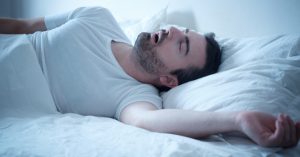University students always seem to have endless deadlines but not enough time to complete them. A strategy that many students use to combat this problem, is to pull an all-nighter to catch up on their work. Adults are supposed to have at least 7 hours of sleep each night so this sleep deficiency may help get work done, but students need to consider the detrimental effects that may occur as a result.
The video attached below discusses some of the main effects sleep deprivation has on not only your mind but also your body. Sleep deprivation affects your learning, memory, mood and reaction time. All of these factors can impact your ability to study and therefore negatively affect your grades.

A study conducted on university students, compared the actions of pulling an all-nighter with depression and academic achievements. Those who pulled all-nighters were seen to have higher tendency of depression symptoms, which can negatively affect their academic performance and mental health. Students often do all-nighters to finish work and study for exams but the study also shows that staying up all night correlates to lower academic achievements as seen in their GPA’s. Along with these factors, sleep deprivation can greatly impact your brain.
University students tend to pull all-nighters without thinking about the negative impacts on their mental health and body. These factors include depression, grades, memory and health. Next time you plan to pull an all-nighter to finish that essay, you may want to consider all the risks you are adding to your body due to sleep deprivation.
Written by Jocelyn Benji





